Today I have a question from Paul:
I was born in Korea, but came to the US when I was 2. In 1978, I was 8 years old and my parents bought a leather bound set of the World Book Encyclopedia. I turned to Korea and the first sentence read, “The Koreans are a stoic people.”
Do you find your husband or his parents to be stoic at all?
I found this to be true of the immigrants to the US from my parent’s generation.
So the modern meaning of stoic is something like being indifferent, detached and calm, or unaffected by adversity. So I’m guessing that Encyclopedia meant that Koreans had remained strong and seemingly unemotional through much adversity. There is also the meaning relating to a school of philosophy where people should be unmoved by passions and emotions and submit without complaint. There are definitely elements of this “submit without complaint” through Korea’s history as they endured many many wars over the centuries. Both Japan and China invaded them many times, sometimes even had wars against each other IN Korea. Korea, being the smaller country learned how to endure this and just carry on.
If we look at the time period, the 1960’s and 1970’s, it’s actually not that long after the Korean War. And before the Korean War was World War II and the Japanese occupation. Koreans had endured a lot! I’m sure being stoic was a way of coping with the hardships they faced, especially during this time. Any Koreans leaving Korea around that time would have taken those values with them.
South Korea, however, has changed incredibly since the 1960’s and 1970’s. South Korea’s economy improved dramatically. There was rapid industrialization, improved living standards, urbanization, modernization: South Korea went from being a war torn country receiving foreign aid, to a wealthy, developed country that could now give out aid to other countries. Quite a transformation. This of course affects the national character of South Koreans and how Korean express themselves now is probably quite different from how Koreans were over 50 years ago.
So what are Koreans like now? I actually find them to be very expressive in general. The relationships they have with others are extremely important, socializing is important and their friendships are expressed openly. It’s not unusual for girls to hold hands and for guys to show a lot of physical affection to male friends. They can react very outwardly emotionally to things, not hiding their feelings at all. I think that stoic character is limited to only some of older generation now and I definitely wouldn’t say all Koreans are like that now.
When people move to another country they try to take their culture with them and hold tightly onto it. Not only Koreans, but many other people from many countries do this as well. What can happen though, as the years pass, is they end up holding onto a culture that is from many years ago and meanwhile the culture in their homeland has changed a lot. Especially if they rarely visit Korea as well and are in a community of other families that all migrated at a similar time. What they view as essential Korean culture may now not be the same as what Koreans in Korea think is essential culture. There may be some views that are out-dated or emphasis on certain aspects that have since faded away in Korea.
This is why sometimes non-Koreans have more problems marrying into an American Korean family or Australian Korean family, but my husband’s family, who live in a small conservative town in rural Korea, actually had no problems with him marrying a non-Korean. But for Koreans that migrated, perhaps they place more importance on marrying only Koreans.
I do remember meeting an American guy who, when heard that my boyfriend was Korean, warned me about Korean families and how they will never accept me etc. His only experience with Koreans was Korean communities in the US, not Koreans actually living in Korea.
Korea is still changing rapidly and people who leave the country for as little as 5 years, can return and be surprised at the change. So I think the character of Korea is constantly changing and evolving.
My husband is definitely not stoic at all. It doesn’t take much to move him emotionally and he feels things deeply and has no problems with expressing it as well. Though he knows how to cope with hard times, he sees no point in bottling up feelings.
My husband’s parents are very expressive in their love for me. We always say “I love you” on the phone. They are always openly concerned about my husband and me and always express how they want us to have a happy life. They have a small farm and work very hard. Sometimes after a long day, when we talk to them on the phone, they say that even though their bodies are sore and they are tired, all the pain and tiredness goes away when they hear our voices. They are comfortable expressing themselves like that.
My husband’s parents don’t speak any English and my Korean is very basic but my father-in-law likes to try and express himself by singing. He knows some English pop songs from years ago. And tries to use them to communicate with me.
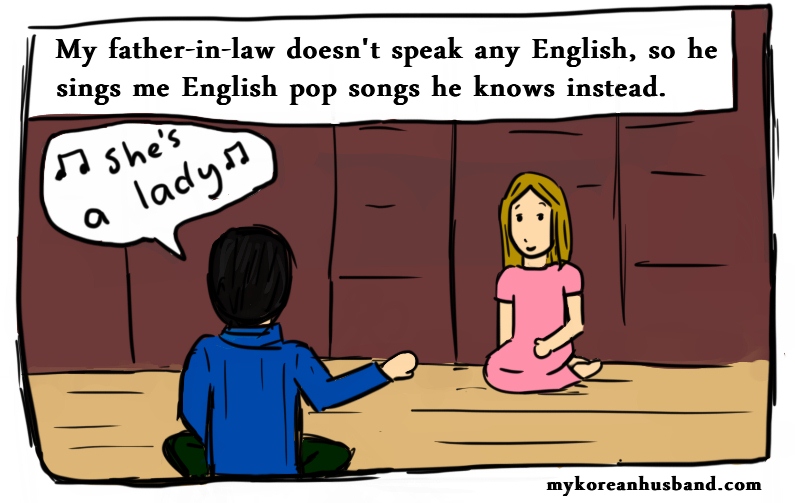 So, in conclusion, while stoicism was definitely essential for Koreans in order to survive in the past, Korea and Koreans are rapidly changing and that definition may not be applicable now.
So, in conclusion, while stoicism was definitely essential for Koreans in order to survive in the past, Korea and Koreans are rapidly changing and that definition may not be applicable now.
That’s just my opinion drawn from my own reading and experiences.
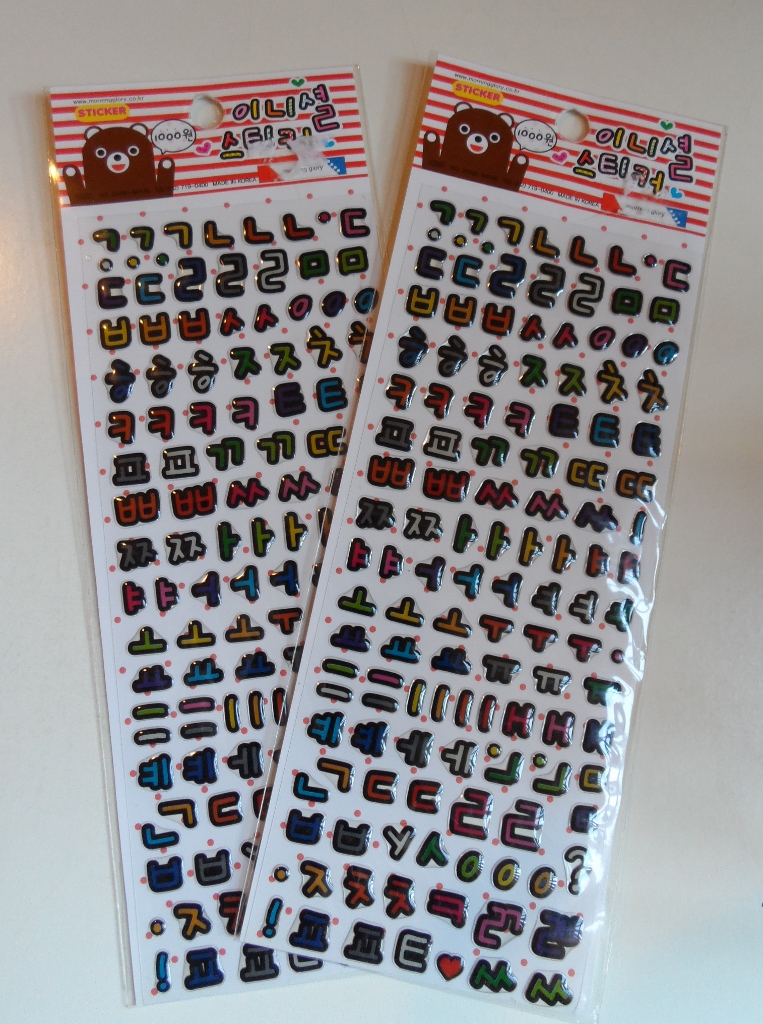 Hangul stickers! Write your name in Korean and stick it on stuff!
Hangul stickers! Write your name in Korean and stick it on stuff!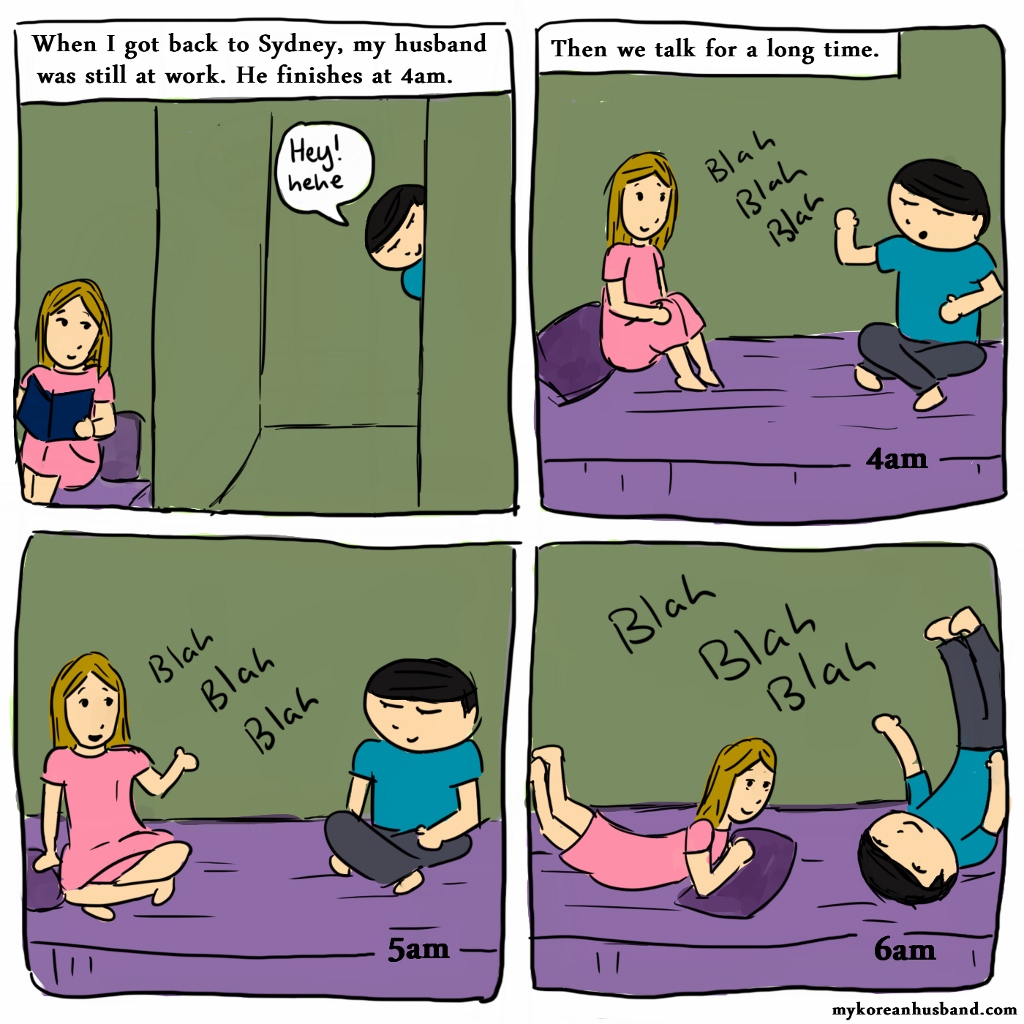
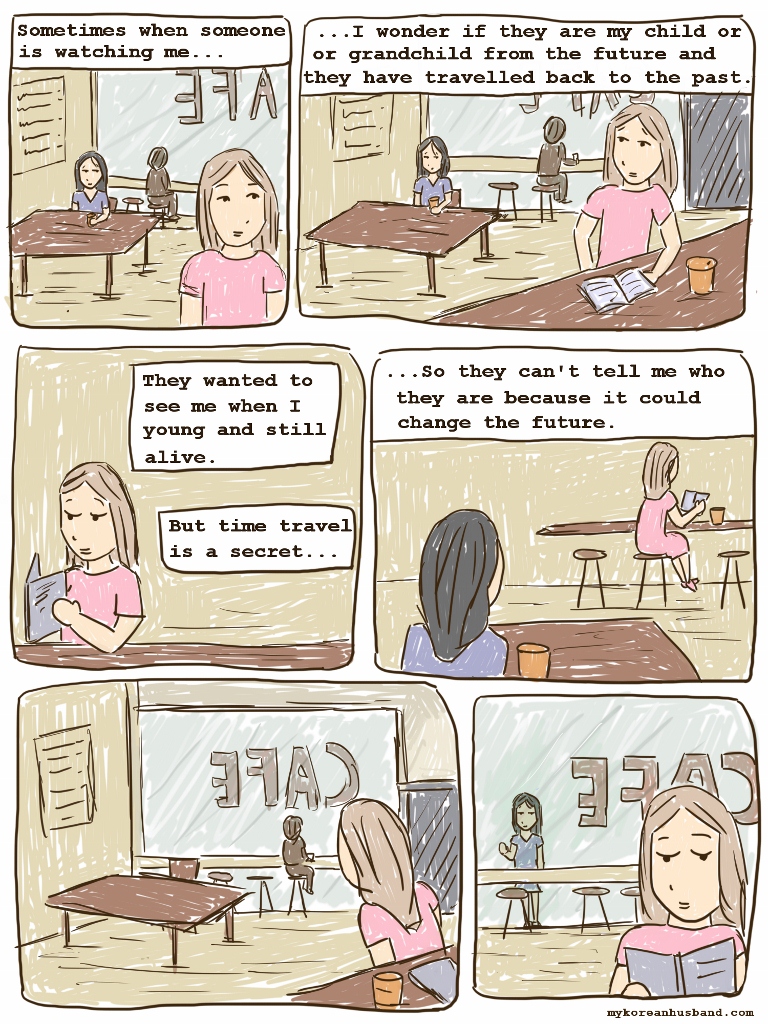
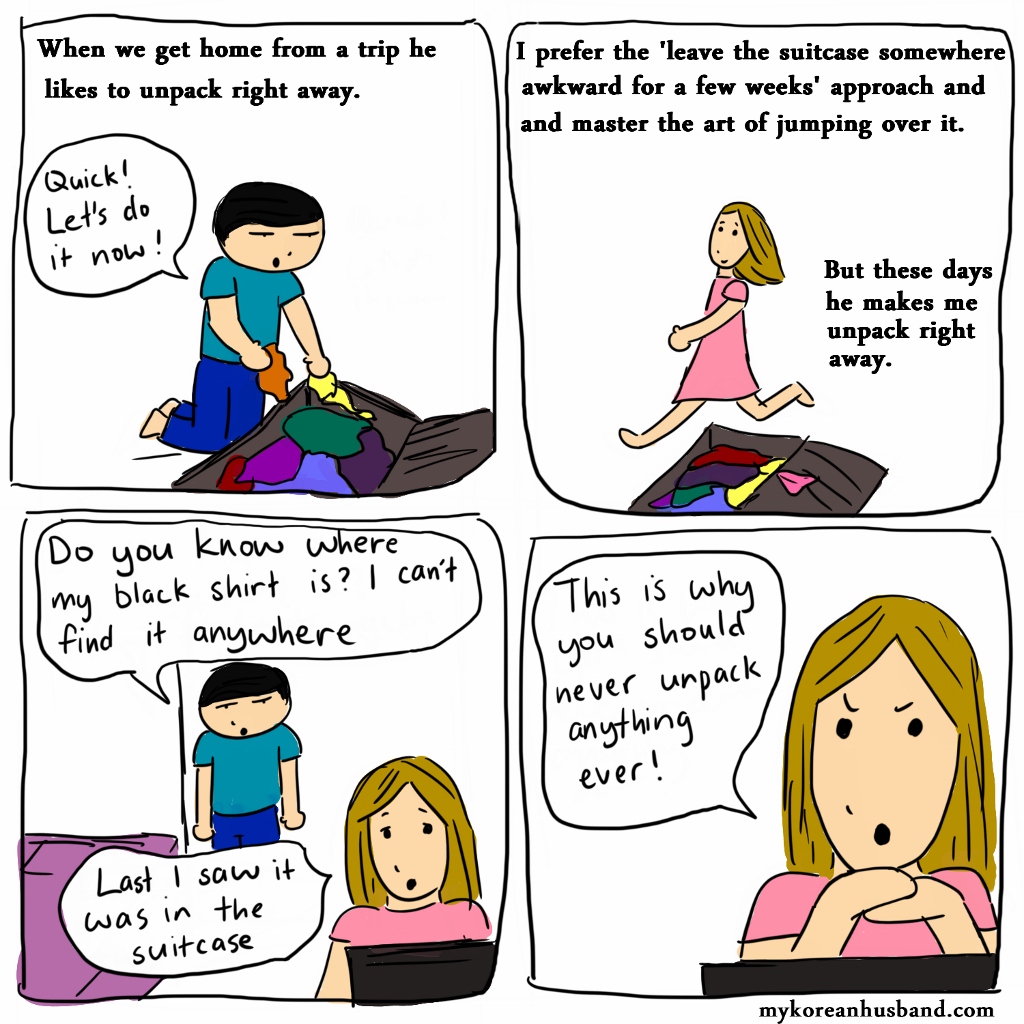
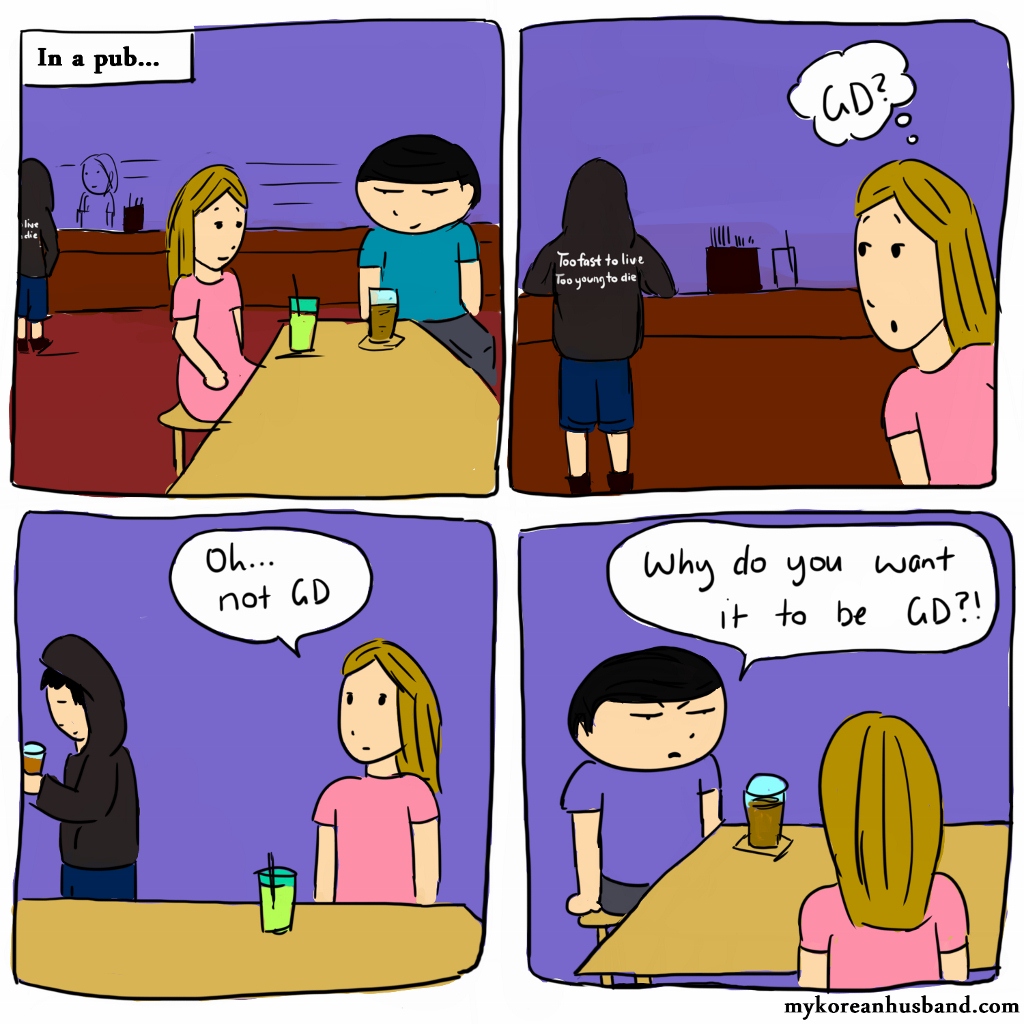


Recent Comments